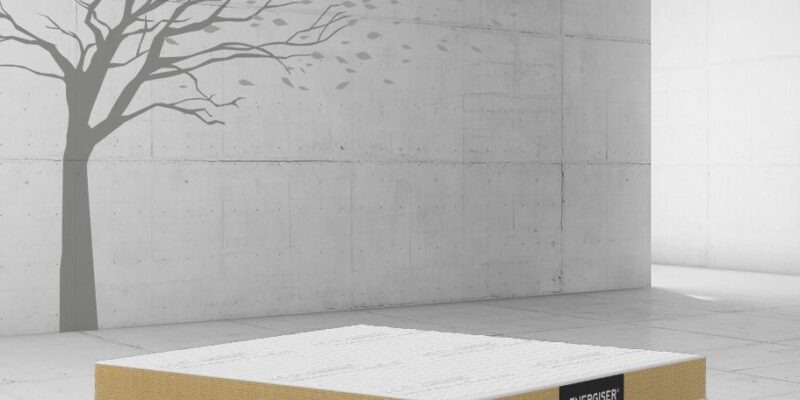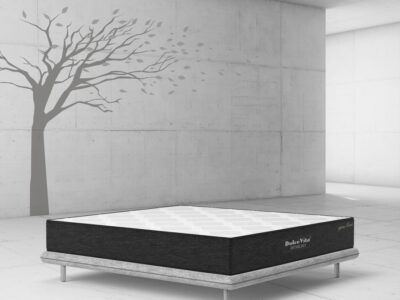
Allergies (dust mites, dust, pollen, mould, etc.) can make it difficult to sleep and disrupt the quality of rest. Choosing the right mattress for allergy sufferers can make all the difference.
Why is it important not to choose your mattress lightly when you are allergic? How to care for it and which mattresses are best suited to allergies?
Tips for a healthy and comfortable sleep
How do you avoid mattress-related allergies?
Are you allergic? It is therefore essential to choose your mattress carefully to avoid the consequences on your health and to ensure quality nights.
Here are some things to keep in mind when choosing your mattress but also tips on how to maintain it properly and avoid the development of any allergens.
A suitable mattress
For allergy sufferers, especially those with respiratory allergies, choosing a suitable mattress can minimize irritation of the respiratory tract during sleep. This contributes to quality rest and better allergy management.
Choose quality by choosing an allergen-resistant best mattress that will help reduce the risk of allergies.
Some mattresses are designed with hypoallergenic materials, minimizing allergic reactions.
And some technologies are to be avoided, such as the spring mattress: the springs leave a lot of space for dust mites who will appreciate developing in them.
An anti-dust mite cover
To limit the presence of dust mites and dust, it is essential to be able to maintain your mattress.
Some mattresses are equipped with covers that are treated and designed to block allergens. These covers are often removable and washable at 60°, making it easier to remove unwanted allergens.
So choose a mattress with a removable washable cover, or buy a hypoallergenic cover certified against common allergens, which you can wash regularly.
Adequate ventilation
Mattresses that promote good ventilation help prevent moisture and mold growth, creating a dry, allergen-friendly environment.
Air your bedding
Airing out your mattress is one of the key points for quality sleep!
In winter and summer, you need to air your bedding to eliminate moisture inside the mattress and limit the development of dust mites, mold, and other allergens.
Get rid of the blanket and cover on your mattress to let it breathe as well as possible. Perform this routine once a week, when you change your sheets, and let your mattress breathe for several hours.
latex mattress
Which mattress should you choose when you are allergic?
Mattresses can be nests of allergens that can cause adverse reactions in sensitive individuals.
A mattress suitable for allergy sufferers and asthmatics, designed to resist allergen build-up and made with hypoallergenic materials, provides an essential barrier against these irritants.
When choosing a new mattress for someone with allergies, you’ll need to pay attention to the mattress’s filling and technology.
The right filling
The filling of a mattress is the upper part of the mattress. It is also called “the reception of a mattress”. It brings that feeling of softness when you lie on the mattress.
The very thick fillings (over 30mm) provide a soft welcome but limit the good ventilation of the mattresses. It is therefore preferable for allergy sufferers to choose a thinner filling that promotes air circulation.
As for the material contained in the filling, synthetic fibers retain less moisture than natural fibers, creating an environment more hostile to dust mites.
However, if you insist on choosing a natural mattress at all costs, new materials are emerging. Coconut fiber and bamboo are 100% natural fibers with great antifungal, anti mite and anti-bacterial abilities.
It is an interesting alternative for allergy sufferers looking for a natural mattress that is good for their health.
The latex mattress: a natural barrier against allergens
Latex mattresses (natural or synthetic latex) are known for their natural resistance to allergens, thanks to their airy structure. It is a dense, honeycombed material that is naturally anti-bacterial.
Prefer certified mattress to ensure that no harmful chemicals are used at every stage of fabric processing. This certification attests to the quality and safety of the mattress, which is essential for allergy sufferers.
The hypoallergenic memory foam mattress
Polyurethane foam (cold foam) and memory foam (memory foam) mattresses have great ventilation capacities. They are particularly suitable for allergy sufferers.
If you appreciate the memory foam mattress for its ability to adapt to the shape of the body, choose the combination of cold foam and memory foam. This type of mattress is a great hypoallergenic solution.
Look for mattresses made with CertiPUR-certified foam to ensure they are free of harmful substances. These mattresses can also act as a natural barrier against allergens, creating a healthier sleeping environment.
for more info about single mattress prices in pakistan
What's your reaction?
Excited
0 Happy
0 In Love
0 Not Sure
0 Silly
0










